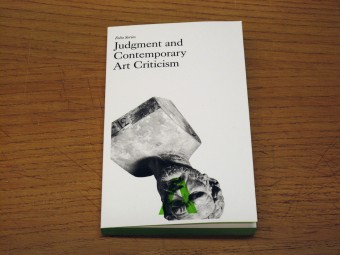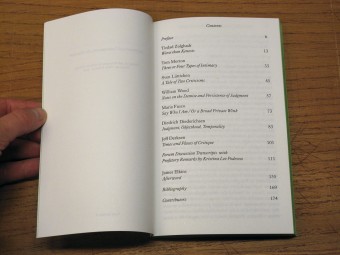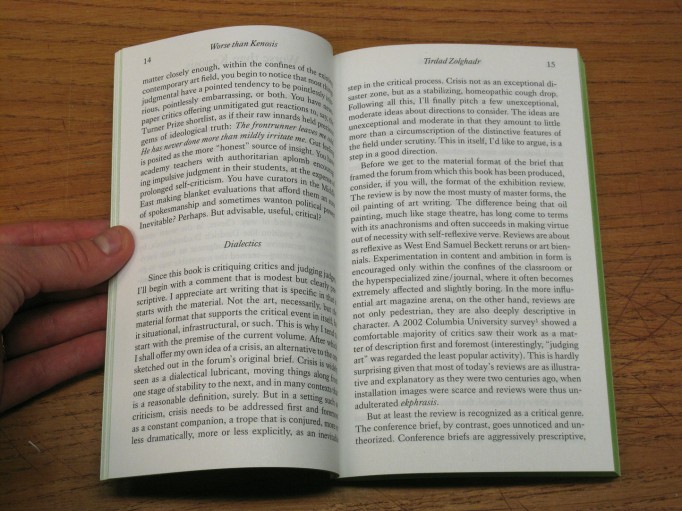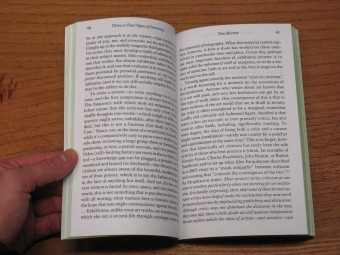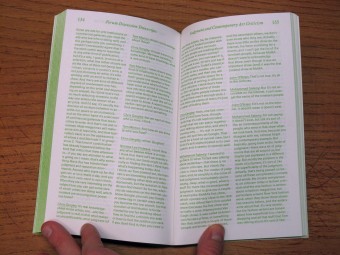Bulletins Of The Serving Library #5. Stuart Bailey, Angie Keefer, David Reinfurt (Eds.). Sternberg Press.
Posted in writing on August 15th, 2013Tags: Diedrich Diederichsen, Germany, Jan Verwoert, Michael Bracewell
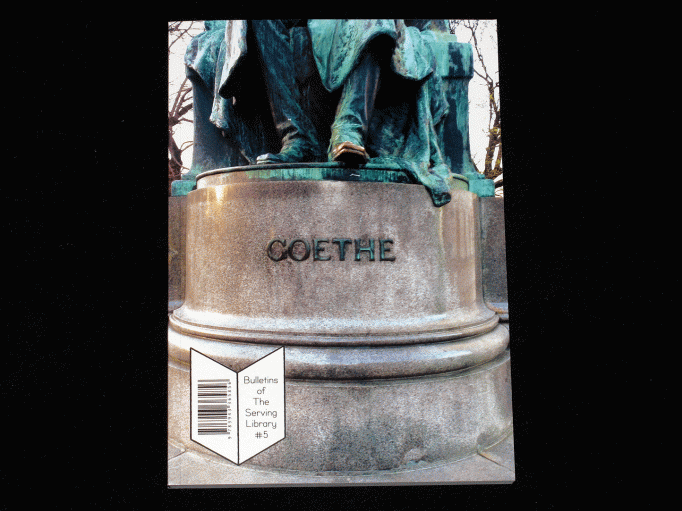
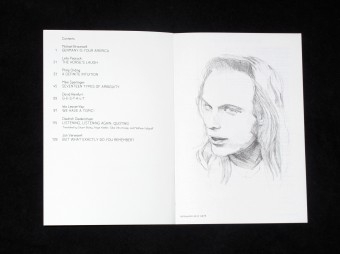
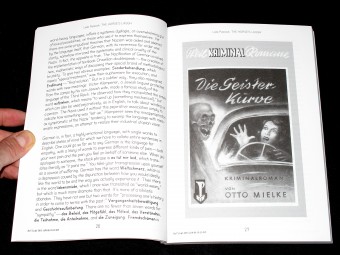
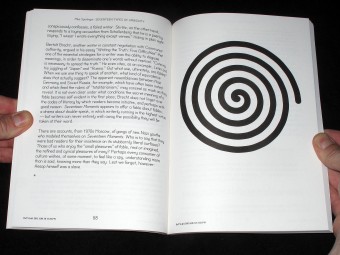
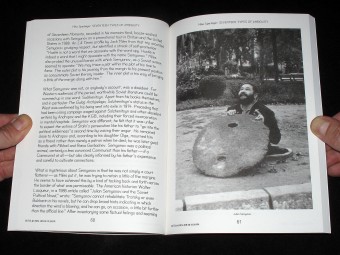
Bulletins Of The Serving Library #5. Stuart Bailey, Angie Keefer, David Reinfurt (Eds.). Sternberg Press.
Contributions by Michael Bracewell, Diedrich Diederichsen, Isla Leaver-Yap, Philip Ording, Leila Peacock, David Reinfurt, Mike Sperlinger, Jan Verwoert
Conceived while in residency at the library of the Goethe-Institut New York, this issue of Bulletins of The Serving Library used the context of the hosting institution as a thematic starting point.
Contemplating this theme as both foreigners and German citizens, many of the contributors present theses that reach deep into the realm of the personal. Jan Verwoert, for example, discusses the communication within his family as a lexicon “somewhere between speech and speechlessness”; while Leila Peacock, as a native English speaker learning German, explores the liminal space between language and translation. Diedrich Diederichsen, together with a list of editors and translators, co-translates his essay “Hören, Wiederhören, Zitieren,” published in the 1997 January issue of Spex. Diederichsen’s discussion of the pop quotation in music highlights the genre’s proximity to language, as the pop quotation “refers to what is absent in the present, and therefore points towards the semiotic nature of any music.”
Language: English
Pages: 152
ISBN: 978-3-943365-85-6
15 €
Buy it

